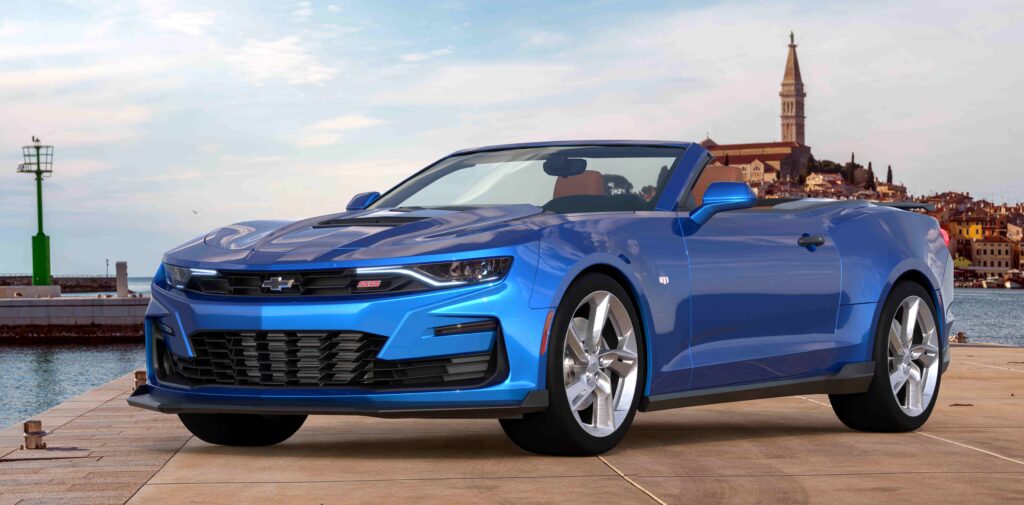Chevrolet Battery Warranty
Chevrolet Battery Warranty. Are you considering purchasing a Chevrolet vehicle and wondering about the battery warranty coverage? You’ve come to the right place! Let’s delve into the details of the Chevrolet battery warranty to ensure you have a clear understanding of what it entails.
What Does the Warranty Cover?
Chevrolet goes the extra mile to ensure customer satisfaction by offering a comprehensive warranty on their vehicle batteries. This warranty serves as a testament to Chevrolet’s commitment to quality and reliability, providing peace of mind to their valued customers regarding the performance and longevity of their vehicles’ batteries.
While the specifics of the warranty coverage may vary depending on factors such as the model and year of the vehicle, Chevrolet’s battery warranty generally encompasses a range of protections. This includes coverage against defects in materials and workmanship that could potentially lead to the malfunction or premature failure of the battery. By standing behind their products with such a warranty, Chevrolet reaffirms their dedication to delivering vehicles that not only perform well but also maintain their reliability over time, ensuring a positive ownership experience for their customers. If you need extra coverage, consider getting the Chevrolet Extended Warranty.
Duration of Coverage
The duration of the battery warranty varies based on the specific vehicle model and production year within the Chevrolet lineup. Typically, when you purchase a new Chevy model, it comes with a three-year or 36,000-mile New Vehicle Limited warranty. This covers a variety of parts, including the factory-installed wet-cell battery. If a manufacturing defect is discovered in that timeframe, you can get a replacement for free. Still, it’s crucial to consult your vehicle’s warranty booklet or engage with your Chevrolet dealer to ascertain the precise duration of the battery warranty applicable to your individual vehicle.
Types of Batteries Covered
Chevrolet’s battery warranty generally extends coverage to the primary battery utilized for both starting the vehicle and operating its electrical systems. This encompasses traditional lead-acid batteries, which have long been the standard, as well as newer technologies like lithium-ion batteries. These lithium-ion batteries are particularly prevalent in hybrid and electric vehicles due to their enhanced energy density and performance characteristics.
Exclusions and Limitations
While Chevrolet’s battery warranty provides valuable coverage, it’s crucial to understand its nuances fully. Being aware of any exclusions or limitations is essential to ensure comprehensive protection. For instance, the warranty typically doesn’t extend to damages resulting from accidents, neglectful maintenance practices, or misuse of the vehicle, such as overloading or improper charging habits. Moreover, any alterations or modifications made to the vehicle’s electrical system could potentially invalidate the battery warranty. Familiarizing oneself with these terms helps in making informed decisions and maintaining the warranty’s integrity throughout the ownership period.
How to Make a Claim
In the event that you encounter any difficulties with your Chevrolet vehicle’s battery within the designated warranty timeframe, it is imperative to adhere to the prescribed procedure to initiate a warranty claim. The first step involves promptly reaching out to your nearest Chevrolet dealership or authorized service center. Upon contacting them, a professional technician will be assigned to conduct a comprehensive inspection of the battery to ascertain whether the encountered issue falls within the purview of the warranty coverage.
Should the identified defect meet the criteria for warranty coverage, the dealership will usually proceed to facilitate the replacement of the battery, all at no additional expense to you as the owner. This replacement process not only ensures the restoration of optimal vehicle performance but also underscores Chevrolet’s commitment to customer satisfaction and quality assurance.
Tips for Battery Maintenance
While Chevrolet’s battery warranty provides valuable protection, proper maintenance can help prolong the life of your vehicle’s battery and minimize the risk of issues arising. Batteries are the lifeblood of our devices, powering everything from smartphones to vehicles. Proper maintenance is key to ensuring they operate efficiently and last longer.
- Regular Inspection: Make it a habit to visually inspect your batteries for signs of damage or corrosion. Look for leaks, bulges, or any abnormal appearances. This should be done periodically, especially before long periods of disuse.
- Keep it Clean. Dirt and Corrosion can hinder the performance of batteries. Clean the terminals with a mixture of baking soda and water to remove any buildup. Ensure the terminals are completely dry before reattaching cables.
- Avoid Overcharging. Overcharging can shorten the lifespan of batteries and even cause them to overheat or leak. Invest in smart chargers that automatically shut off when the battery reaches full capacity. If using a standard charger, avoid leaving devices plugged in overnight or for extended periods.
- Proper Storage. If you’re storing batteries for an extended period, ensure they are at a partial state of charge. This prevents them from fully discharging, which can lead to irreversible damage. Store batteries in a cool, dry place away from direct sunlight and extreme temperatures.
- Use the Right Charger. Different batteries require different charging voltages and currents. Using the wrong charger can lead to overcharging or undercharging, both of which can damage the battery. Always use the charger recommended by the manufacturer or one specifically designed for your battery type.
-
Avoid Deep Discharges.
Lithium-ion batteries, commonly used in smartphones and laptops, should not be fully discharged regularly. Instead, aim to keep them between 20% and 80% charged for optimal performance. Deep discharges can degrade the battery’s capacity over time.
- Exercise NiMH Batteries. Nickel-metal hydride batteries, often found in rechargeable AA and AAA batteries, benefit from occasional full discharges and recharges. This helps prevent “memory effect,” where the battery loses capacity if repeatedly recharged without being fully discharged.
- Limit Heat Exposure. High temperatures can accelerate the degradation of batteries. Avoid exposing them to direct sunlight, leaving them in hot cars, or placing them near heat sources. Optimal operating temperatures vary depending on the battery chemistry but generally range between 68°F to 77°F.
- Replace Old Batteries. All batteries have a limited lifespan, typically measured in charge cycles. If you notice a significant decrease in performance or shorter run times, it may be time to replace the battery. Don’t wait until it fails completely, as this could lead to unexpected downtime.
- Follow Manufacturer Guidelines. Finally, always refer to the manufacturer’s guidelines and recommendations for proper battery maintenance. Each type of battery has specific requirements and best practices that should be followed to maximize lifespan and performance.






